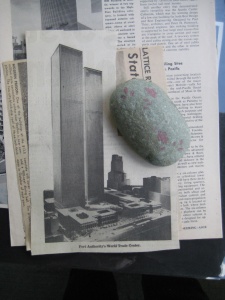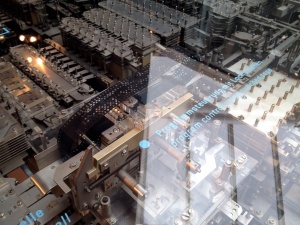Critical Infrastructure Studies
- Course Number: ENGL 238
- Prerequisites:
Check GOLD
- Advisory Enrollment Information:
Check GOLD
- Quarter: Fall 2024
Class Meeting Time: Tuesdays, 2:00-4:50 pm
Location: South Hall 2635
In an era when complexly hybrid material-virtual infrastructures, ranging from the micro to the macro in scale, seem to obviate older distinctions between the material base and cultural superstructure, how can the humanities, digital humanities, and media studies join the social sciendsfces, science technology studies, design and planning fields, and arts in an emergent “critical infrastructure studies”? What are the traditions of such studies? What are some especially high-value areas for intervention by humanities scholars of past and present periods? And how do critical infrastructure studies bear on continuing problems of social justice, including (infra) structural racism?
This course explores the hypothesis that critical infrastructure studies is one of today’s renewed forms of cultural criticism and media theory. Looking at the world from the point of view of infrastructure — and of the people (and creatures) who at once shape and are shaped by infrastructure — allows us to ask different questions than those posed in the frame of “culture” or “media.” We’ll think broadly about the things, platforms, containers, walls, passageways, and gates — material, mediated, and symbolic — that structure who we are in relation to the world and each other.
The course draws on selected materials from the CIstudies.org bibliography curated by Alan Liu to pursue a sequence of approaches to infrastructure, including those grounded in ethnography, science technology studies (STS), media infrastructure studies, digital humanities, social justice studies, “repair” and “waste” studies, and literature and the arts (especially poetry).
Assignments: Students create a “starter kit” exhibit of readings and other materials for infrastructure studies in their areas of interest, and they also write either a set of research blog posts or a research essay.

